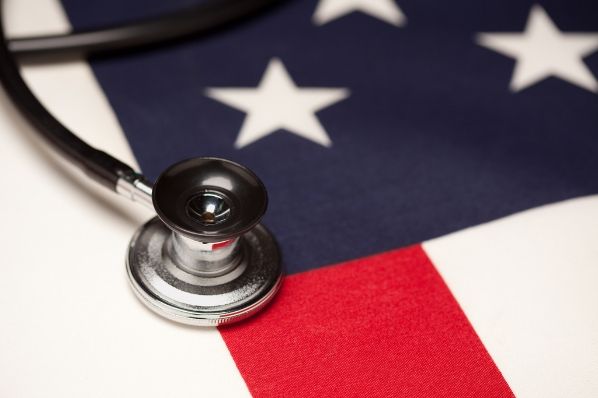Quote of the Day:
The ongoing health-care circus in Washington may seem to be full of sound and fury, signifying nothing. But it’s really about who should control some of the most personal and important decisions in a person’s life — millions of individual consumers or the government bureaucracy.
–Michael Tanner in this morning's New York Post
The so-called "skinny" repeal of ObamaCare failed last night because three Republican senators would not vote for it–but here's something to think about: if Republicans can't come together on where health-care reform should go, it is likely that Democrats would be able to do so.
Democrats, unlike the Republicans, are team players and they are also moving towards a new orthodoxy on health-care reform: single-payer.
As Michael Tanner points out this morning in the New York Post, support of single-payer has gained support in the Democratic Party since the 2016 election:
Democrats, in fact, have moved far to the left on health care. In the 2016 presidential primaries, Bernie Sanders proposed “Medicare for All.” Most Democrats, including Hillary Clinton, distanced themselves from the idea. Today, the idea of “single-payer” health care is rapidly becoming part of Democratic orthodoxy.
Just last weekend, New York Sen. Kirsten Gillibrand told The Wall Street Journal that she now supports a single-payer system. And her colleague, Senate Minority Leader Chuck Schumer, declared “single-payer is on the table” for Democrats. Sanders may have lost the battle for his party’s nomination, but he is clearly winning the war over its future direction.
Tanner cites a recent Pew poll that found that only a third of Americans want single-payer.(Democrats support it by 52 percent and liberal Democrats by 64 percent.) While these numbers aren't overwhelming in favor of single-payer, Pew found that support for single-payer is growing and that this increased support is "driven by Democrats."
The survey should have said "driven by liberal Democrats": only 42 percent of conservative or moderate Democrats favor single-payer. But their leaders in Washington and their party's most active elements have moved in that direction.
Popularity with the Democratic base, however, doesn't make single-payer any more economically feasible:
Americans can just look to Bernie’s model, Medicare, with its $50 trillion in unfunded future liabilities, and recognize that a single-payer system would be prohibitively expensive. Recall that Bernie’s campaign proposal would’ve cost more than $30 trillion over its first 10 years.
Earlier this summer, California legislators abandoned an effort to establish a statewide single-payer system, after the legislature’s own estimates said it would cost some $400 billion per year — more than the state’s entire budget. In New York, a proposal for a state single-payer system was estimated to cost $226 billion per year.
Of course, in the face of this unaffordable tide of red ink, Democrats will point out that other countries with single-payer systems spend less on health care than the United States. But that comes with a price of its own: limits on the availability of care. Some developed countries ration care directly. Some spend less on facilities, technology or physician incomes, leading to long waits for care.
Such tradeoffs aren’t inherently bad, and not all health care is of equal value. Plus, the United States imposes its own form of rationing by price. No health-care system anywhere in the world provides everyone with unlimited care. However, Americans have always believed that such determinations are most appropriately made by patients rather than the government.
As Tanner and others have pointed out, this debate is taking place in the shadow of the tragic story of Charlie Gard, the very sick little boy in the United Kingdom, which does have a single-payer system.
In little Charlie Gard's case, the issue wasn't money (his parents had raised nearly two million dollars to treat their son) but of government control.
The government refused to let the parents bring Charlie to the U.S. for experimental treatment, when there was a chance, ever how small, that it would help Charlie. It further seems that the government will not allow the parents to take their little boy home for his inevitable death.
So far, Americans have always believed that individuals (or parents in the case of infants) have the right to make our own decisions about medical care.
Charlie Gard and his grieving parents show us what happens when government is in control.


